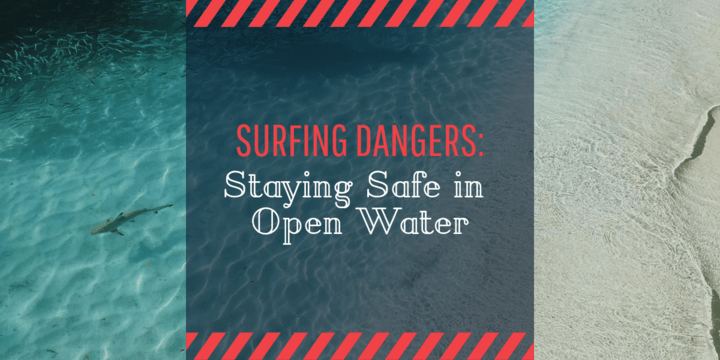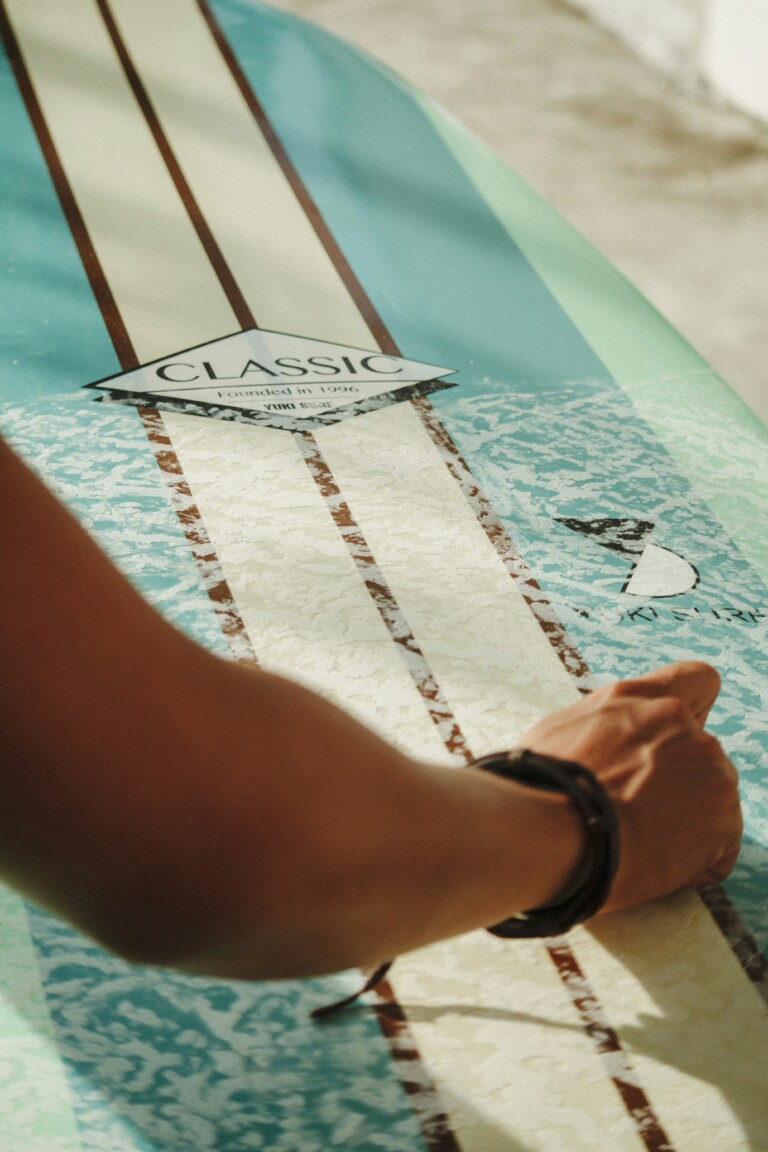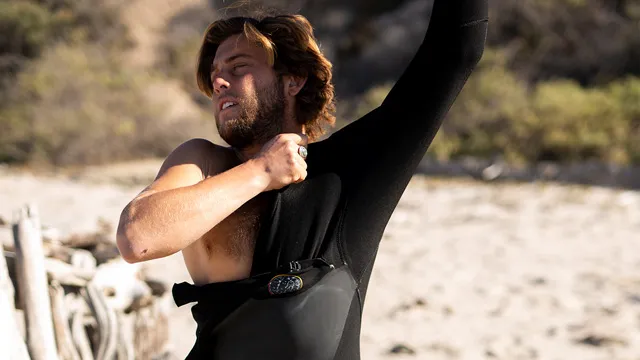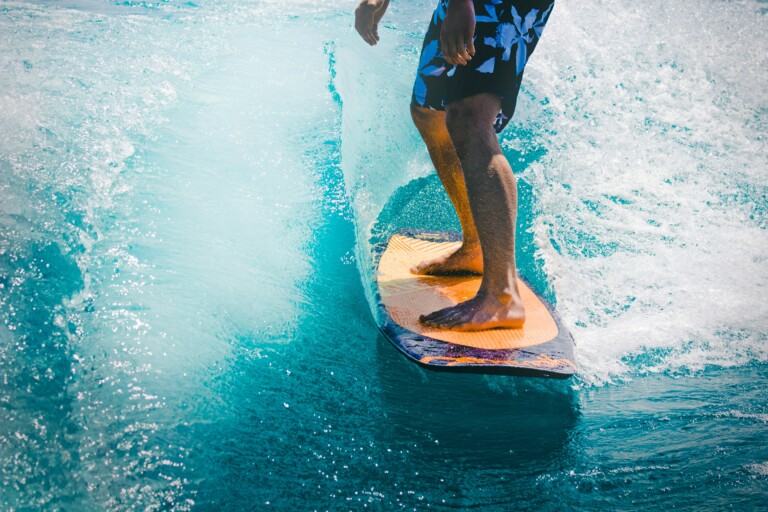If you’re anything like me, the first time you went surfing you were so excited that any dangers that might be lurking above or beneath the waves were the furthest things from your mind. While excitement, adrenaline, and sheer will are all critical factors of an exhilarating and productive day out on the water, seasoned surfers are all too aware of the consequences of naivety. So, before you head out to the beach again, take a few minutes and learn about some of the obvious, and not so obvious, surf-related risks and discover some tips for getting yourself out of a potentially dangerous situation.
SHARKS
Let’s begin with the #1 reason most people never attempt surfing—sharks. In any saltwater body, there are going to be sharks. Sharks like cold water, sharks like warm water, and sharks, just as we do, like hanging around places where food is easy to find.
While you probably won’t see sharks every time you go out, you will eventually find yourself sharing the water with one of these toothy creatures. If you spot a shark in the area, first call out as loudly as possible to signal help then try to remain as still as possible and move your arms and legs onto your board, especially if you have any open, bleeding wounds.
Odds are, the shark will move on without bothering anyone, but if the shark does approach you get ready to defend yourself. Use your board as a shield and, if possible, as a weapon. Hit the shark with your board, your leash, or if necessary your fists. Aim for the softest parts of the shark’s body, it’s nose, eyes, and gills. Continue defending yourself until help arrives or the shark decides you are not worth the fight and takes off. Whatever you do, do not try to swim to shore. Sharks love a good chase, and they are much faster than you.
To keep yourself from having to deal with sharks, bear these things in mind.
1) Don’t surf at night or the break of dawn. Sharks tend to hunt during these darker times of the day.2) Don’t surf alone. Sharks are less likely to approach large groups of surfers.3) Don’t surf in areas with dead, sick, or rotting marine life. Sharks love an easy meal and are not picky eaters.4) Don’t surf with open and/or bleeding wounds. Yes, sharks can smell blood.5) Don’t go in the water if shark warning or shark sighting signs have been posted. That’s a pretty simple one.
WAVES AND RIP CURRENTS
Waves are not soft and delicate. Sure, it usually feels better to wipe out on your surfboard in the water than it does on your skateboard on the asphalt, but do not underestimate the brute force of waves and rip currents.
An average wave can weigh nearly 1,000 pounds. So, imagine a full-grown horse falling on you if you end up in the wrong part of the wave break. You can get knocked out and drown. Your bones can break. Your board can break and knock you out.
Rip currents are narrow channels of water that can move up to 8 feet per second. If you get caught in a rip current, you can be swept out to sea rather swiftly and violently.
Always swim parallel to the shore if pulled into a rip current. Do not try to swim straight towards the beach or the rip current will pull you even farther out into the water. People who do this get pulled under the water because they exhaust themselves trying to fight against the current. Beach officials will alert surfers and swimmers when rip currents are likely. Stay out of the water until the danger passes.
GETTING TANGLED IN YOUR LEASH
You will inevitably get your arms and legs tangled in your leash. The leash is tied to the board and to your ankle to keep your board from drifting away from you. That’s all good and well until you wipe out and feel your circulation being cut off as the leash strangles your bicep. Make sure to untangle your leash before you catch another wave and be sure it is positioned correctly. If possible, get a swivel leash to make tangles less likely.
OTHER SURFERS
Surfers tend to be a laid-back species, but nothing ruins your time on the water more than inexperienced surfers or territorial surfers. Inexperienced surfers are not trying to take you out; they often can’t help themselves. They may not know surfing etiquette, basic surfing techniques, or only how to stay out of the way. If you notice a lot of beginner-level surfers in a particular area, go somewhere else. Or, be a team-player and help them learn the rules.
Territorial surfers are a different beast, however. Some surfers like to “claim” a beach as their own and can get quite nasty if newbies try to infiltrate. Getting into a fight or getting injured by another surfer cutting in on your wave is never worth it. There will be other days and other beaches. Go home.
ROCKS AND CORAL
While you hope to stay off of the ocean floor when surfing, sometimes a wave or a fall can drill you down to the bottom. Rocks and coral can feel like knives cutting into your feet, torso, or face and can leave severe rashes, open wounds, and bruises. Wearing a wetsuit can help protect your skin. As a rule, inexperienced surfers should avoid areas with rock or coral.
THE ELEMENTS
Last, but not least, protect your body from Mother Nature. Wear water-proof sunscreen with a decent SPF and re-apply it often. Stay hydrated. Expending energy and being in the salt water and sun will dry you out quickly. Keep an eye on the weather. If you see lightning, get out of the water. If you see a waterspout, get out of the water. As mentioned before, there will be other days and other beaches.
Now, stay safe out there!
















